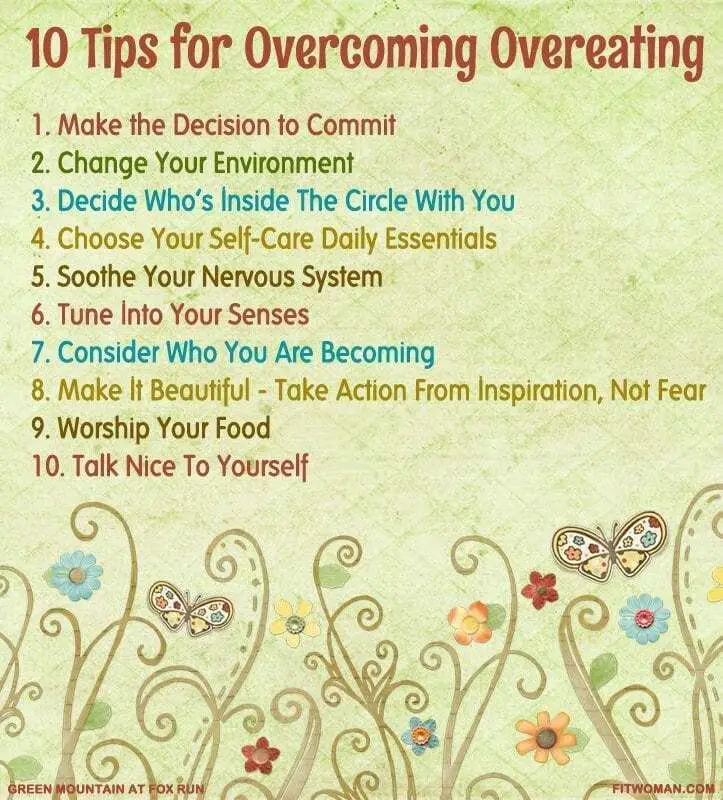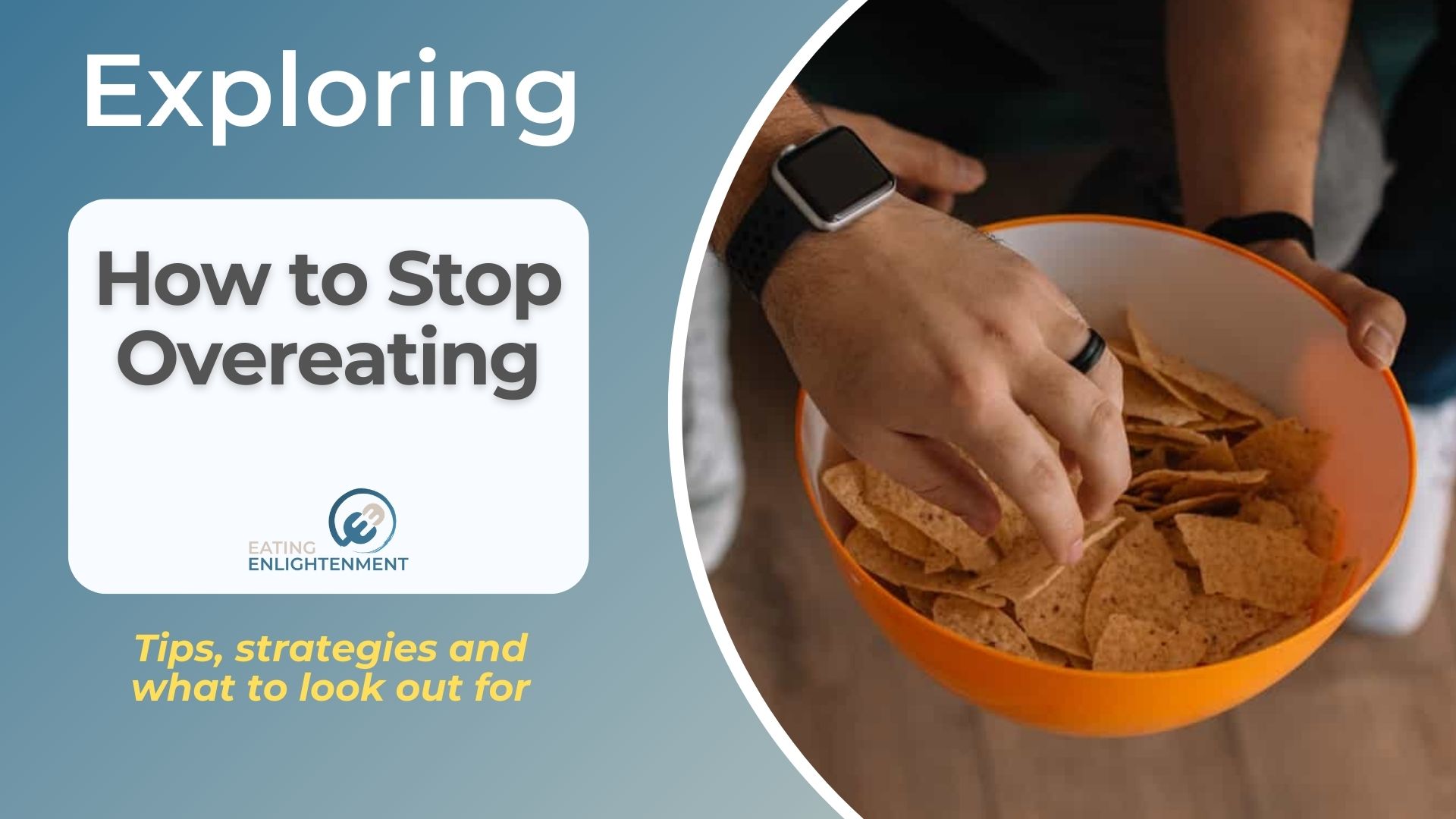How do you know when to stop overeating? This is a question that many people have trouble answering. The truth is, there is no one-size-fits-all answer to this question.
Everyone has different hunger signals and different amounts of food that make them feel full.
That being said, there are some general tips that can help you figure out when to stop eating. In this blog post, we will discuss those tips and help you learn how to listen to your body’s natural hunger signals!
What is hunger?
Before we get into the tips to know when to stop overeating, it is important to understand what hunger is.
Hunger is our body’s way of telling us that it needs energy. It is a natural and necessary feeling.
When you are hungry, you may feel a growling sensation in your stomach, known as “hunger pangs.” You may also feel weak, tired, or irritable.
However, many people often think they are feeling hunger pangs when they really are having other feelings, such as boredom or anxiety. This can lead to overeating, which can be harmful to your health.
It is important to listen to these signals and eat when you are truly hungry.
Why You Need To Avoid Too Much Hunger To Stop Overeating
If you allow yourself to get too hungry, you are more likely to overeat. This is because when we are very hungry, we tend to lose control of how much we eat.
We may also make poor food choices when we are very hungry, such as choosing unhealthy or high-calorie foods.
Survival “Animal” Brain
When you get too hungry, your body goes into “survival mode.” This means that the part of your brain that controls rational thought (the prefrontal cortex) shuts down.
At the same time, the “animal” part of your brain (the amygdala) takes over. This part of the brain is responsible for our survival instincts, such as fight-or-flight.
In other words, when you are very hungry, you are more likely to make impulsive and irrational decisions about food. This can lead to overeating or making poor food choices.
How To Avoid Getting Too Hungry

Remember, to stop overeating you actually must first focus on hunger and not getting too hungry!
There are a few things you can do to avoid getting too hungry:
- Eat regular meals and snacks: This will help to keep your hunger at bay and prevent you from getting too hungry. If you cannot eat regularly, consider a supplement.
- Listen to your body: Pay attention to your hunger signals and eat when you are truly hungry.
- Avoid skipping meals: Skipping meals can lead to overeating later on.
- Drink plenty of water: Water can help to take up space in the stomach and make you feel fuller.
What Is Fullness?
Now that we have discussed hunger and how to avoid getting too hungry, let’s talk about fullness.
Fullness is the sensation of being satisfied after eating. It is different from satiety, which is the feeling of being full and not wanting to eat any more.
Fullness occurs when the stomach stretches after eating and sends signals to the brain that it doesn’t need any more food.
These signals are then relayed to the digestive system, which slows down or stops digestion. This process takes about 20 minutes to happen.
How To Know When You’re Full

There are a few things you can do to know when you’re full:
- Listen to your body: Pay attention to the signs that your body is full, such as a decrease in hunger or feeling satisfied after eating.
- Eat slowly: It takes about 20 minutes for the stomach to send signals to the brain that it’s full. So, if you eat too quickly, you may not realize you’re full until it’s too late.
- Avoid distractions: Distractions can make it difficult to pay attention to your body’s hunger and fullness signals.
This will help prevent overeating and discomfort later on.
Now that we’ve discussed what hunger and fullness are and how to know when you’re full, let’s talk about some tips for avoiding overeating.
Tips For Avoiding Overeating

There are a few things you can do to avoid overeating, and they are very similar to things you can do to know when you’re full.
- Eat regular meals and snacks: This will help to keep your hunger at bay and prevent you from getting too hungry.
- Listen to your body: Pay attention to your hunger signals and eat when you are truly hungry.
- Avoid skipping meals: Skipping meals can lead to overeating later on.
- Drink plenty of water: Water can help to take up space in the stomach and make you feel fuller.
- Stop before you’re stuffed: It’s important to stop eating before you feel overly full or stuffed. This will help prevent overeating and discomfort later
- Meditate: Learning meditation can help you become less impulsive
How To Stop Overeating Using A Mindful Food Journal

If you’re like most people, you probably overeat from time to time. It’s easy to do when you’re not paying attention to what you’re eating. But if you’re trying to lose weight or maintain a healthy weight, overeating can be a real problem.
One way to help control your eating is to keep a food journal. Writing down what you eat and drink can help you become more aware of your eating habits and make it easier to make healthier choices.
Here are some tips for keeping a food journal:
1. Start by writing down everything you eat and drink for one day. Include even the small snacks and drinks that you might not think of as “real” meals.
2. At the end of the day, take a look at your journal and assess how much you’ve eaten. What were your hunger cues? What triggered your overeating?
3. Make a note of how you felt after eating certain foods. Did certain foods make you feel bloated or uncomfortable? Or did they give you energy and leave you feeling satisfied?
4. Use your journal to help plan healthy meals and snacks. If you notice that you tend to overeat when you’re hungry, plan ahead with healthy snacks that will fill you up! And if you find that certain foods make you feel bad, try to just make a note in the journal about how you felt.
Keeping a food journal can be a helpful way to become more mindful of your eating habits and make better choices when it comes to food. So give it a try and see how it works for you!
Watch out for Clean Plate Syndrome
Clean Plate Syndrome is the idea that you must finish what’s on your plate.
This can be a problem because it can lead to eating even when you’re no longer hungry.
To avoid this, listen to your body and stop eating when you’re full. It’s okay to leave food on your plate! (But if you do, then put the leftovers back in the fridge or compost them!)
While you may feel guilty about leaving food on your plate, you must realize this guilt is misplaced.
It’s more important to listen to your body and stop eating when you’re full, even if that means there’s food left.
If you suffer from Clean Plate Syndrome, you can try to purposefully leave just one bite left on the table.
This will help to retrain your brain to realize it’s okay to stop eating when you’re full and to leave a bite on the plate.
Overtime you can leave more food on the plate if you are full and genuinely don’t want to eat.
Watch for when the flavor decreases
You know that feeling when you’ve been eating something delicious and then it no longer tastes good?
This is because your brain becomes less sensitive to the flavor of food as you eat.
So, when the flavor decreases, it’s a sign that you’re getting full.
You can use this as a cue to stop eating.
Another reason to pay attention to the flavor of your food is because it can help you to eat mindfully.
When you’re paying attention to the flavor of your food, you’re more likely to notice when you’re getting full and to stop eating.
Final Thoughts
Overeating can lead to a number of problems, such as discomfort, weight gain, and digestive issues.
It’s important to be aware that overeating is a problem for many people. It’s also important to remember that hunger and fullness are normal sensations that everyone experiences.
The key is to pay attention to these signals and eat when you’re truly hungry and stop when you’re satisfied. By doing this, you can avoid overeating and the discomfort that comes with it. Thanks for reading! I hope this was helpful:)
Do you have any questions or comments? Please leave them below!



